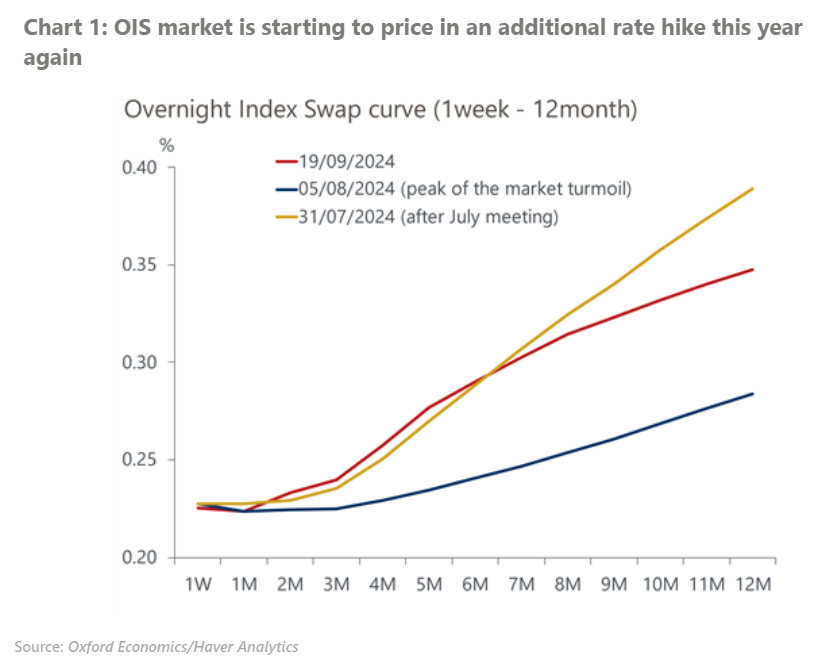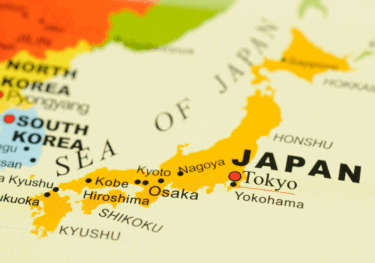Japan’s political calendar and yen will delay a rate hike to December
The Bank of Japan maintained its policy rate at 0.25% during Friday’s meeting. Although we still expect an additional rate hike this year, we now expect that it will take place in December rather than October, given the updated political calendar and the recent yen strength.
What you will learn:
- Economic developments seem to support an earlier rate hike. Though the CPI inflation is trending down, it is mostly due to a fading supply side pressures and will not likely alter the BoJ’s projection that its inflation target will be achieved in the coming years. Consumption is staring to improve as inflation eases and wages increase after a strong Spring Negotiation.
- Financial markets are still jittery but are gradually calming down following a period of heightened volatility in early August. As financial markets calm down, the bond market is again pricing in an additional rate hike by the BoJ within this year, backed by recent hawkish comments from BoJ officials.
- We now think that the BoJ’s next rate hike will be in December, rather than October, to avoid worsening its relationship with the new administration. Although the overall impact of an additional hike will be limited, its impact on vulnerable firms and households will not be politically welcomed. At the press conference, Governor Kazuo Ueda stated that recent yen gains have reduced upside risks to the price outlook and provided more time to consider next move.

Tags:
Related Posts

Post
Tariffs and Politics Leave the BoJ Powerless in Japan
The Bank of Japan kept its policy rate at 0.5% at its July meeting. We continue to think the BoJ will exercise caution on rate hikes despite still-high inflation and a recent trade deal with the US.
Find Out More
Post
US-Japan Trade Deal Fails to Shift Japan’s Growth Outlook
We estimate that the US's effective tariff rate on Japanese products is around 17%, in line with our baseline assumption. Lower tariffs on autos are a positive, given the sector's significant contribution to the economy and its broad domestic supporting base
Find Out More
Post
Japan’s Rising Political Instability Will Undermine Fiscal Discipline
The ruling Liberal Democratic party (LDP) and its partner Komeito lost their majority in Japan's upper house elections on July 20. Although Prime Minister Shigeru Ishiba will likely stay to avoid political gridlock, especially to complete tariff negotiations with the US, the political situation has become fluid and could lead to a leadership change or the reshuffling of the coalition.
Find Out More